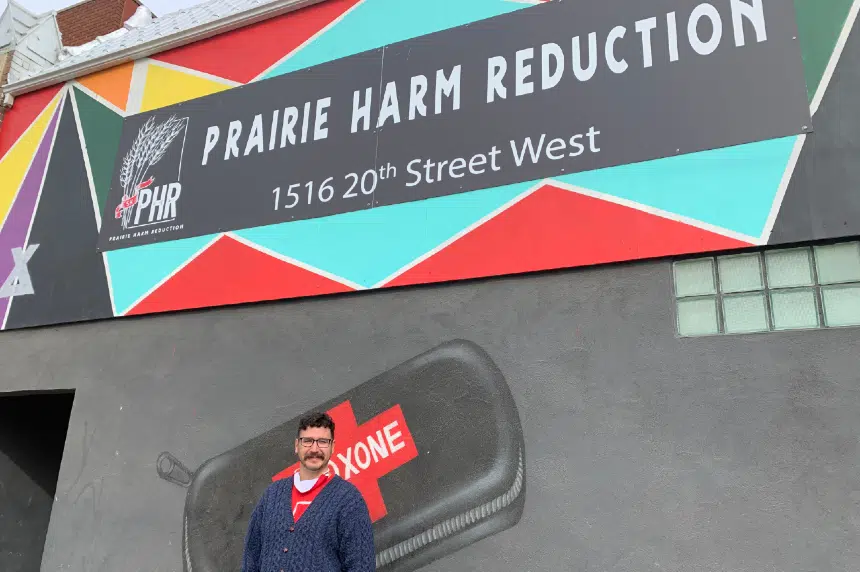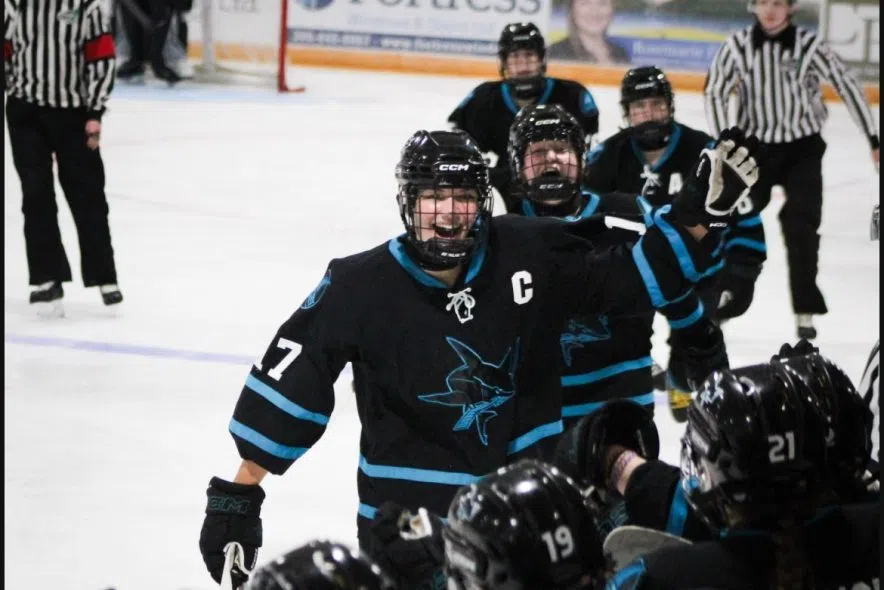For the second straight year, it was a no from the Saskatchewan government.
That’s the reality that now faces Prairie Harm Reduction (PHR), the lone safe consumption site in Saskatchewan. The organization was left out of the provincial budget cycle for the second straight year.
That isn’t sitting well with PHR executive director Jason Mercredi, who spoke to 650 CKOM around 30 minutes after the budget was released Tuesday.
“This budget has done nothing to stop people from dying …,” Mercredi said.
“(We’re) definitely shocked. It’s definitely disappointing. It stings a bit.”
Mercredi took issue with some of the mental health and addictions initiatives in the budget. That includes the funding of mobile harm reduction sites.
“(That’s) basically needle exchange vans in Regina, Saskatoon and Prince Albert. Well, mobile needle exchange services already exist in those communities. So that’s already an existing program that they tabled as if it was a new program,” he continued.
Mercredi said on the west side of Saskatoon, organizations such as PHR, Saskatoon Tribal Council and the Westside Community Clinic already have that area covered.
“It’s not needed up here, so that means that they’re going have to push those services into the Riversdale Business Improvement District, the Downtown Business Improvement District, the 33rd Street (Business Improvement District), and as far as we know they haven’t consulted any stakeholders about that expansion — and it’s also not needed because they already have that service funded,” he said.
Another announcement came for harm reduction supply vending machines. Mercredi said this would be a good plan — if it were rolled out half a decade ago.
“It’s an awesome, innovated approach for 2016. We’re in 2021. We need an innovative approach that’s going to stop people from dying,” he said.
“Just across the board, it seems like a carbon copy of last year’s budget. They’re announcing half a million dollars for a public health awareness campaign. Well, all that campaign’s going to do is tell people that 400-plus people have died in the last 14 months.”
PHR’s asks weren’t just for $1.3 million
Mercredi said the $1.3-million ask wasn’t the only plan that was given to the province.
The $1.3 million was just for a 24/7 operation. Beyond that, PHR came up with three other options for the province.
“We tabled $900,000 for us to operate to midnight. We tabled $600,000 to operate in the evenings and we tabled even one (proposal) just to operate under our current hours. I think it was like, around $300,000 to $400,000,” he said.
“They denied us across the board. This is small potatoes to deal with the most intensive individuals, hardest to work with, quote-unquote, individuals that the province has to deal with mental health and addictions issues.
“People tell us we’re the best and yet we’re not being funded like we’re the best. We’re seeing these half-measures across the whole province.”
In mid-March, Mercredi told 650 CKOM that PHR’s goal was to meet in the middle, operating until midnight at the facility.
“At this point, we’ll take anything because we need to be able to offer extended hours and enhanced service quality,” he said March 15.
‘This is a Saskatchewan issue, it needs a Saskatchewan response’
Since January 2020, 420 Saskatchewanians have died from either confirmed or suspected drug overdose, according to the monthly reports by the Saskatchewan Coroners Service.
That includes 75 since the beginning of 2020, with March’s numbers expected by the week’s end.
When asked what’s next for the overdose crisis, Mercredi didn’t hold back.
“I think at a certain point, Scott Moe needs to decide that this is a priority for himself. This is not a problem Scott Moe can blame on Justin Trudeau. This is a Saskatchewan issue, it needs a Saskatchewan response. And we need to know how they’re going to stop people from dying,” he said.
“We continually see community members step up with donations (or) small businesses step up with fundraisers. It’s down to the community to address this. The response has been largely identical to the responses from the AIDS crisis in the late 1980s, early 1990s. We were pretty hopeful when we saw a new minister was announced … It’s just weird that they’d carbon-copy last year’s mental health and addictions plan.”
When it comes to the existing operations at PHR, nothing is going to change when the doors reopen Wednesday. It’ll operate at the same hours of 10 a.m. to 4 p.m., from Monday to Friday.
Mercredi said he’s interested to see what the crisis looks like this time next year.
“Indication is this is not a priority for the government. They are very comfortable with the amount of people that have died. They’re comfortable with 2021 being the worst year on record for overdose deaths in the history of the province … This is soul-searching time. I don’t know what else to say,” he said.
In terms of the long-term future of PHR, Mercredi didn’t sugarcoat what the organization is dealing with.
“That’s a good question,” he said. “The community (in) Saskatchewan is made up of beautiful people who really care … The people care for sure. I think we found out what the elected officials (feel) … We’ll continue to do it as best we can for as long as we can.
“The sad part is this not going away. It’s not getting any better. We’re willing to put our money where our mouth is. The province is not.”







